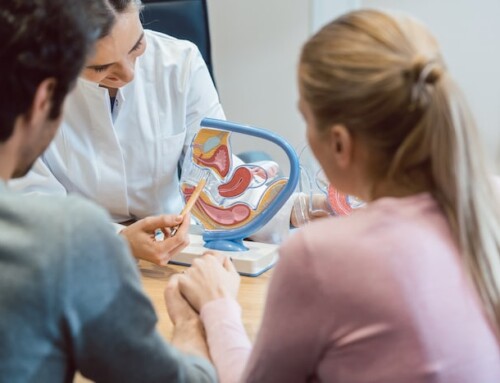Trust me, I’m a doctor.
Are miscarriages being diagnosed too early ?
For those who are desperately following their dream of carrying a child, it’s the stuff of nightmares. Medical statistics have suggested that doctors could be diagnosing miscarriages too early, i.e. ending a pregnancy which could have been viable. It seems like a major mistake to make – and yet the reality is that it’s happening.
How do the current NHS guidelines allow this ?
It isn’t as simple as doctors getting it wrong; there are lots of factors which go into a diagnosis of a miscarriage and some of these are being given more weight than others which can lead to wrong diagnoses. The principle missing factor is very simple and absolutely free – it’s time. A study of women showed that out of 549 pregnancies, 19 would have been wrongly diagnosed if the current guidelines had been followed. If a woman is given a scan which suggests the pregnancy is not viable, it’s not routine to wait and give a second scan 14 days later. The research carried out strongly suggests that if this were the policy, the number of miscarriage diagnoses would drop.
What factors do they look at when scanning for the first time ?
The criteria they use when assessing whether an early pregnancy is viable or not include:
– The size of the embryo (if visible)
– The size of the sac and whether or not it looks empty
– Whether a heartbeat can be found
When a woman has a scan, it may be a standard scan for the number of weeks pregnant she is, or it might be as a result of bleeding. In 1/5 pregnancies, a miscarriage will take place at less than three months. If the scan is carried out and the gestational sac has reached 25mm then a second scan should always be arranged for 1-2 weeks later. Many doctors will offer a second scan anyway, and some for an even smaller pregnancy. However, this is not currently reflected in the guidelines – and it needs be. When this debate surrounds something as potentially devastating as a miscarriage, there should be no room for error.
Changing the NICE guidelines
As it stands there are not rigid enough guidelines about both the size of the embryo and the gestational sac. Doctors argue that a 14 day waiting period between scans should be mandatory, to eliminate any uncertainty over the viability of the embryo. At an early stage it simply isn’t possible sometimes to say with 100% accuracy that the pregnancy is not going to survive. There are no sophisticated tests that can be carried out; it simply is a case of watching and waiting and re-scanning at a later date. Understandably, the parents may feel anxious throughout and like it’s a long wait, but in terms of whether it’s worth doing, a difficult wait weighed up against absolute certainty is without doubt the best way forward.
Trust
When a miscarriage is diagnosed, women have little option but to rely on medical opinion. With adjusted guidelines, women would have the security of knowing that if they are scanned and it doesn’t look promising then they can return in 14 days and if the sac had been empty then the embryo should be visible, or if the embryo was already visible then a heartbeat should be detected.
Put simply, there should be no errors over something as vital as a miscarriage. By just waiting 14 days longer the chances of an error drops to nothing. This truly is a case of the time-honoured concept of “wait and see”. However, with dual emphasis these days on convenience and immediacy, “waiting and seeing” doesn’t always occur to some. The current guidelines state that a 7 day gap between scans is enough, but statistics are beginning to prove that this simply not the case. Only a longer period of time will allow for the pregnancy to develop if it’s going to, and likewise, if after 14 days there has been little or no progression then it would be certain that sadly, the pregnancy is at an end.
A miscarriage is not just a simple grief for the parents. It’s a grief that unfurls and extends to cover hopes, wishes, dreams, siblings and often the wider family. It’s not just the loss of a baby, it’s the loss of what that baby represented. A miscarriage is an enormous loss in all senses and certainty in diagnosis is an absolute must.
At the Cyprus IVF Centre, unfortunately we do see miscarriages sometimes after successful treatment. And whilst it’s never an easy thing, our medical staff are highly trained to deal with such a sensitive, emotional time and provide support to families who find themselves in this position. Having a miscarriage can be devastating and only by further research, and a change to the current NICE guidelines, can these situations be turned around.






